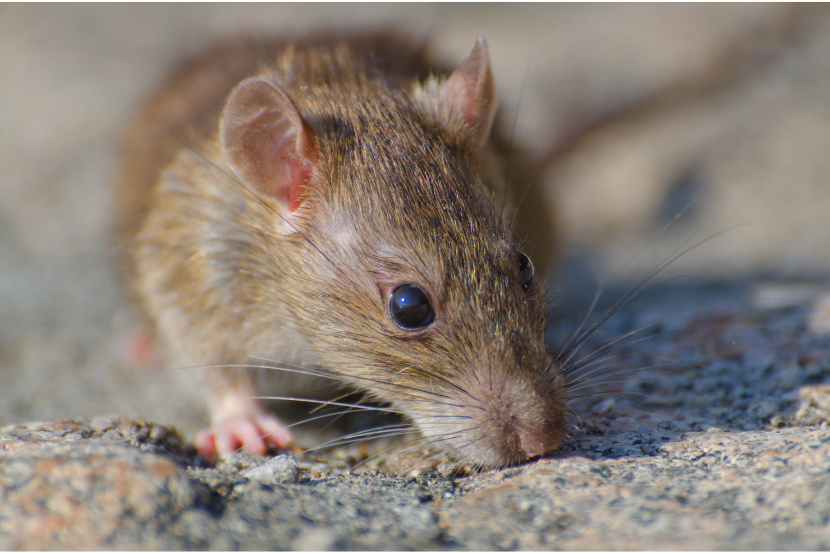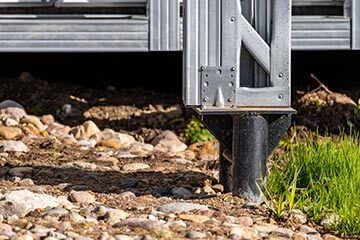Pests. They’re a right pain, aren’t they? From mice, wasps and rats, they can cause health risks, damage your home, and just make you feel uncomfortable.
In worst-case scenarios, rodents can chew through wires or pipes, which can cause risk of fire or leaks.
The bad news? Most standard home insurance policies don’t cover pest problems. The good news? There's ways to get covered.

Does home insurance cover pest control?
In most cases, no. Standard home insurance won’t cover you for pest infestations. So if rats take up residence in your walls, you’re likely on your own.
But there’s a glimmer of hope: home emergency cover.
This add-on is designed to help when something in your home suddenly goes wrong, like a burst pipe, a dodgy boiler... or a rat infestation.
The British Pest Control Association reported a 115% surge in rat control enquiries between October 2023 and January 2024. That’s a lot of uninvited guests. So, it’s worth checking if your home emergency cover includes pest removal.
These policies usually cover pests like:
- Rats and mice
- Squirrels
- Wasps and hornets
- Cockroaches
Always read your policy documents, they spell out exactly what’s covered and what’s not.
Some insurers also offer standalone pest insurance. This covers call-outs, labour, and treatments. But before signing up, compare it to the cost of a home emergency add-on.
How much does pest control cost?
If you don’t have cover, you might need to pay a specialist. Here’s what you could expect to pay:
| Pest problem | Price range | Average cost (UK) |
|---|---|---|
|
Pest control specialist (per day)
|
£200 - £260
|
£230
|
|
Rat/mouse removal (two visits)
|
£120 - £240
|
£180
|
|
Flea control (per property)
|
£80 - £220
|
£150
|
|
Bed bug treatment (per property)
|
£100 - £280
|
£190
|
|
Bed bug heat & insecticide (up to 3 bedrooms)
|
£1,000 - £1,500
|
£1,200
|
|
Cockroach treatment (two visits)
|
£120 - £260
|
£190
|
|
Ant removal (per treatment)
|
£100 - £230
|
£165
|
|
Wasp control (one nest)
|
£75 - £200
|
£137.50
|
|
Squirrel control (two visits)
|
£100 - £300
|
£200
|
|
Moth treatment (per treatment)
|
£150 - £2,000
|
£500
|
(Source: Checkatrade, May 2024)
How can home emergency cover help?
If you’ve got home emergency cover, it’s a lifesaver for pest infestations. You can call in the pros to sort the problem, whether it’s a wasp nest or a family of rats.
Just a heads-up: home emergency cover usually fixes the problem, but it won’t pay for any damage caused by pests. For example, if a rat chews through a pipe and causes a leak, the pipe repair might be covered, but the water damage won’t.
For that, you’ll need to check your buildings insurance or contents insurance.
How can I prevent pests ?
You can’t stop every pest, but you can make it harder for them to get in. Here’s how:
- Seal up gaps – even tiny holes can let pests in.
- Check the loft and sheds – make sure there aren’t any openings.
- Keep your kitchen clean – no crumbs, no pests.
- Clear the gutters – standing water is a breeding ground.
- Check your pets for fleas – they can bring pests inside.
Can bins and recycling attract pests?
Absolutely. Bins and food waste are a big draw for pests. Mice, rats, wasps, and even foxes are attracted to the smell of leftover food.
Here’s how to keep pests away:
- Keep your bins sealed – make sure lids fit snugly.
- Empty bins regularly – don’t let rubbish pile up.
- Clean them out – give bins a good scrub now and again.
- Recycle safely – rinse out food containers before recycling.
- Compost properly – if you have a compost bin, make sure it’s secure.
By managing your waste well, you’re making your home a lot less appealing to pests.
How can I get rid of pests?
For minor issues, you could try humane traps or DIY solutions. But for bigger problems, like a wasp’s nest, call in the experts. It’s not worth risking a sting.
If you have home emergency cover, use it. That’s what it’s there for.
If you don’t, you can contact your local council (if you’re in England or Wales), they might offer pest control services, sometimes for free. Or hire a private pest control firm.







